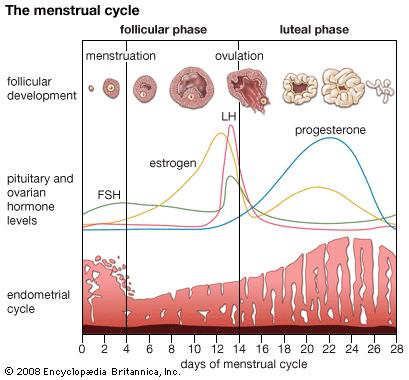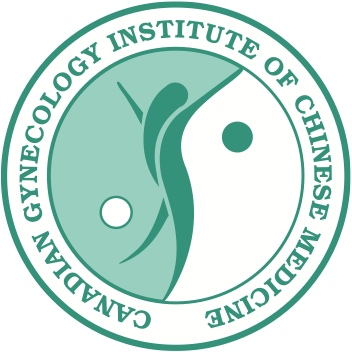Menstrual Problems
Every woman has a menstrual period, but not every woman has an smooth, regular or painless one. Mentrual problems are the most common disease in gynecology.
What is a normal menstrual cycle?
-
A normal cycle is from 21-35 days in length (most common is 28 days).
-
Day 1 is considered to be when the menstrual bleeding begins.
-
The menstrual bleeding should be free from pain and discomforts and last from 2-6 days.
-
Average blood loss of 20-60ml
Menstrual problems refer to problems involving;
-
Length of cycle
-
Amount of menstrual bleeding
-
Painful menstruation
-
PMS: Premenstrual syndrome
Such as;
-
Early menstrual cycle
-
Delayed menstrual cycle
-
Irregular menstrual cycle
-
Profuse (heavy) menstruation
-
Scanty (light) menstruation
-
Long lasting menstruation
-
Dysmenorrhea (painful period)
-
Amenorrhea (absent period)
-
Bleeding between periods (bleeding or spotting)
-
Metrorrhagia and metrostasis (massive bleeding or constant dripping)
Menstrual symptoms such as;
-
Breast distention
-
Fever
-
Headache
-
Aching body
-
Diarrhea
-
Nosebleeding
-
Eruption of rash
-
Dizziness
-
Edema
-
Emotional liability
Treatment with TCM- Traditional Chinese Medicine
There is one famous saying in Chinese Medicine: It is better to treat 20 men than 1 woman. This is an acknowledgement that women’s bodies are more complex than a mans and therefore harder to treat. This is due to the fact that women have extreme fluctuations throughout the month.
A woman’s menstruation should be free from any pain, clots, have sufficient fresh colour and have minimal pre/post symptoms.
If there are any negative symptoms involving the menstruation, this means some aspect of organ function is out of balance. The organs more closely related to menstruation include the liver, spleen and kidneys, with the kidneys being the origin of menstruation itself.
Liver: The Liver has two functions that affect menstruation. First, the Liver stores the Blood. Second, the Liver regulates the distribution of Blood amount in the body. The Liver also smoothes and regulates Qi, making Qi flow freely in the whole body and activates Blood circulation. When Liver Blood goes down to the “Sea of Blood” (Chong Meridian) and changes into menstrual Blood, women have menstruation. Often liver Qi disruption is involved with breast symptoms around menstruation time, as the liver channel passes through the breasts.
Spleen: The Spleen and Stomach, since they are an earth element, have the function of transforming the food essence into Blood and Qi (life force energy), so the Spleen and Stomach are the source of Qi and Blood. Menstrual Blood originates from the Blood, therefore a Spleen weakness causes menstrual problems by failing to make enough Blood. Spleen Qi has the function of holding Blood and if Spleen Qi is weak, Blood may leak out and cause bleeding problems. Finally, the Spleen also has the function of transforming water and is known as the pivot for water metabolism. For these three reasons, if some pathogenic factor such as eating improperly or too much thinking injures Spleen function, a deficiency can occur and the Spleen can no longer transform food and water or control the Blood in the vessels and gynecological problems will happen.
Kidney: The kidney’s strength decides the arrival of menstruation. Both the Kidney Essence and Blood are the material basis for menstrual Blood. The Kidney yin and yang energy maintain a dynamic balance involved in the monthly cycle.
By observing the symptoms and asking questions a practitioner can determine which organ/s are out of balance and precible the appropriate treatment to strengthen or reduce what my be weak or in excess.
Menstrual Renewal
During menstruation is one of the three times that a woman has to either improve or damage her health.
Although not a popular concept in the West, there is a rich history in Traditional Chinese Medicine when it comes to caring for the body very specifically during menstruation, postpartum and menopause. These three times are considered the three golden opportunities when the proper care can improve a woman’s health.
Improper care-or lack of proper care can damage health or cause illness.
Even though our society and way of life have been changing quite rapidly, the forces that govern the cycles of our bodies have not changed. Having an understanding of these natural cycles and following certain lifestyle guides, one can prevent illness and cultivate health. One key thought is that the human in its natural state does not automatically create balance. We have to make a conscious effort to make choices to remain in balance. We have many ways to help our bodies achieve balance, such as with food, meditation and exercise. The monthly period is a time of transition, which can upset the balance of homeostasis in the body. There are significant changes in hormones as well as the buildup and discharge of blood. Signs of disharmony should be taken as a message that there is an upset to some aspect of the balance-but often times it is just repressed, ignored with medications which often make the problem worse. In order to understand how women can improve their health during this time, there is one key concept that must be understood. Essence (Jing in Chinese) is the substance in our bodies that contains our genetic materials, the strength of our constitution as well as our reproductive strength. The Jing is stored in our Kidneys and our reproductive organs. When a child is created, it is the meeting of the Jing of both parents. Jing is closely related to menstruation, as bleeding easily causes blood deficiency and over time can lead to Jing deficiency. Menstrual renewal focuses on the first 7 days of the cycle (Day 1 when period begins). This includes 4-5 days of menstrual bleeding plus plus 2-3 days after the bleeding has stopped. Women’s bodies tend to be more Qi (energy) and blood deficient or weak, and during this time, improper diet and lifestyle can make deficiency worse and can easily lead to blood stasis. Practices: The most important is rest. Women should get an extra hour of sleep each night. Keep warm, keep feet, legs, lower back and abdomen covered at all times to protect from cold (this can be relaxed in warm weather and for women who are normally hot). Moxibustion on the lower abdomen and lower back is helpful to keep the uterus warm. Avoiding the following behaviours that allow the invasion of cold into the uterus: Menstrual Renewal Cont:
How Chinese Medicine Treats Menstruation Problems
Internal Medicine: Herbs are used to strongly influence the hormonal system, addressing any weakness or excess in the body. Herbs are available in powders, pills and decoctions which we can cook or can be cooked at home.
-
Herbal medicine is taken daily until the symptoms affecting the cycle have been eliminated.
-
Treatment can last from 1-3 cycles on average, but last longer depending on other complicating factors and how long the problems have been going on for.
-
Hip Bath: Raw herbs are boiled at home and the liquid is added to a small bath, deep enough to soak the hips in. The herbs in the hip bath soaks the pelvic region in herbs with substances that improve the circulation and promote the proper function of the pelvic organs.
-
Hip baths are taken daily for 15- 20 minutes for as long as internal herbs are being taken, stopping during the period.
-
Acupuncture: Acupuncture is done 1-2 times per week, until the symptoms have resolved. Acupuncture is particularly useful for menstrual irregularities and hormonal problems.
-
Heat Lamp: An infrared heating lamp is an added tool used during acupuncture treatments.

